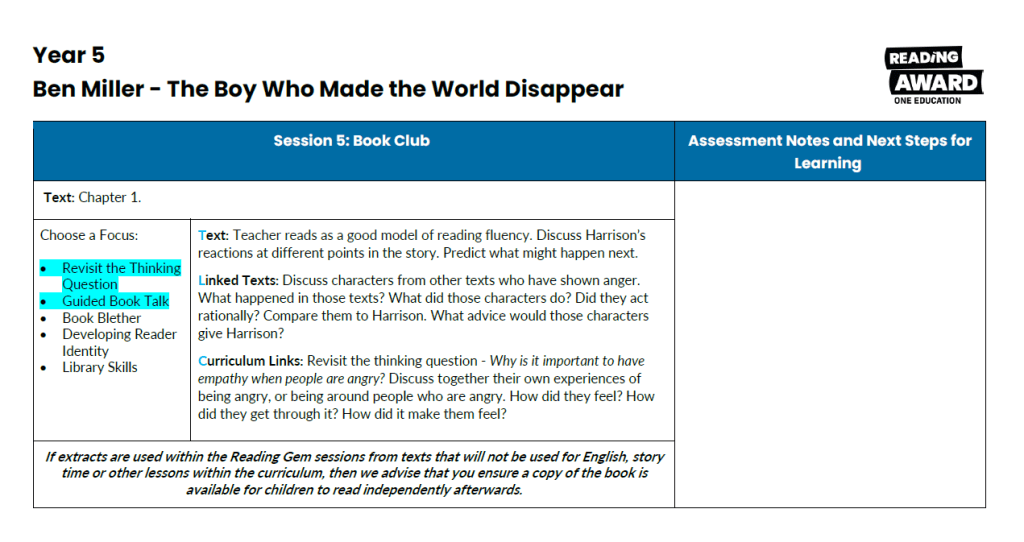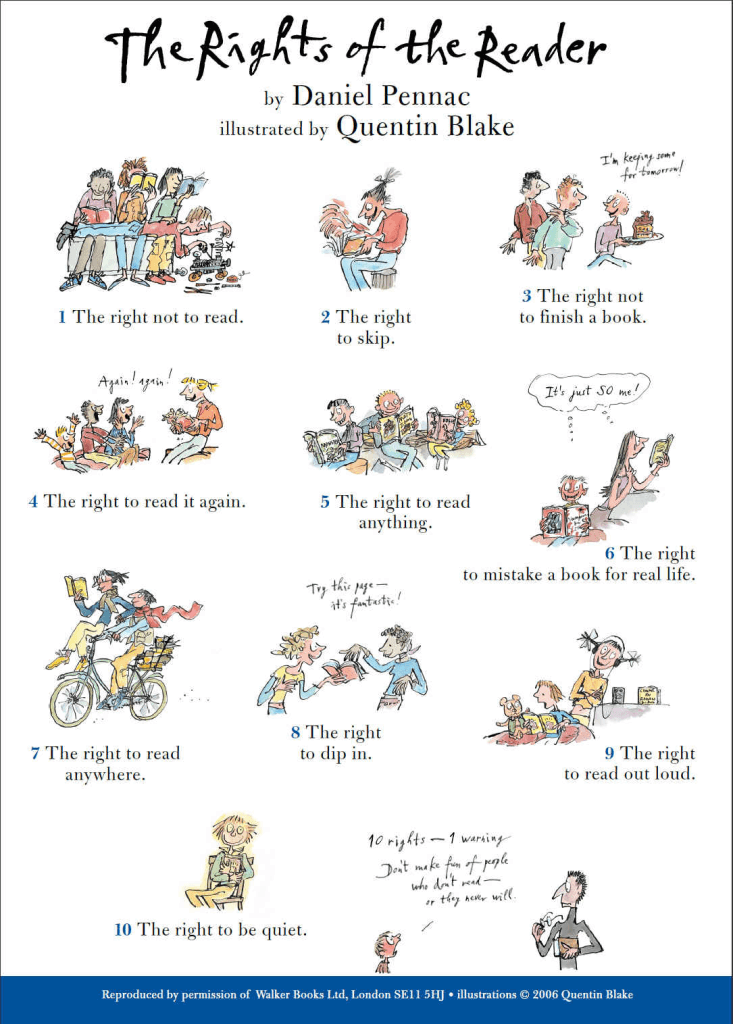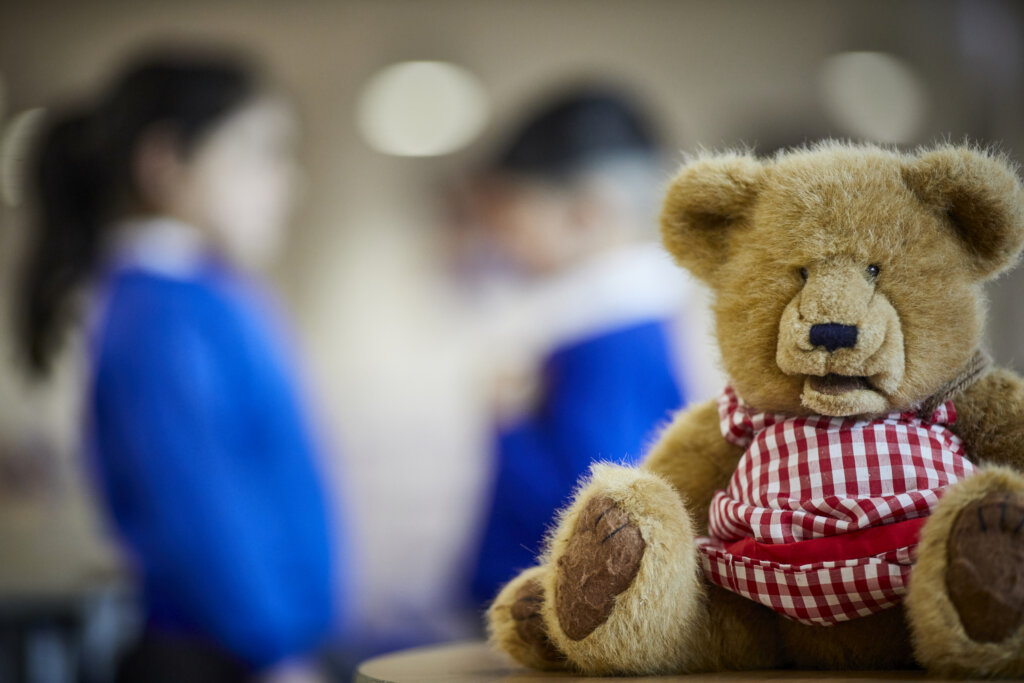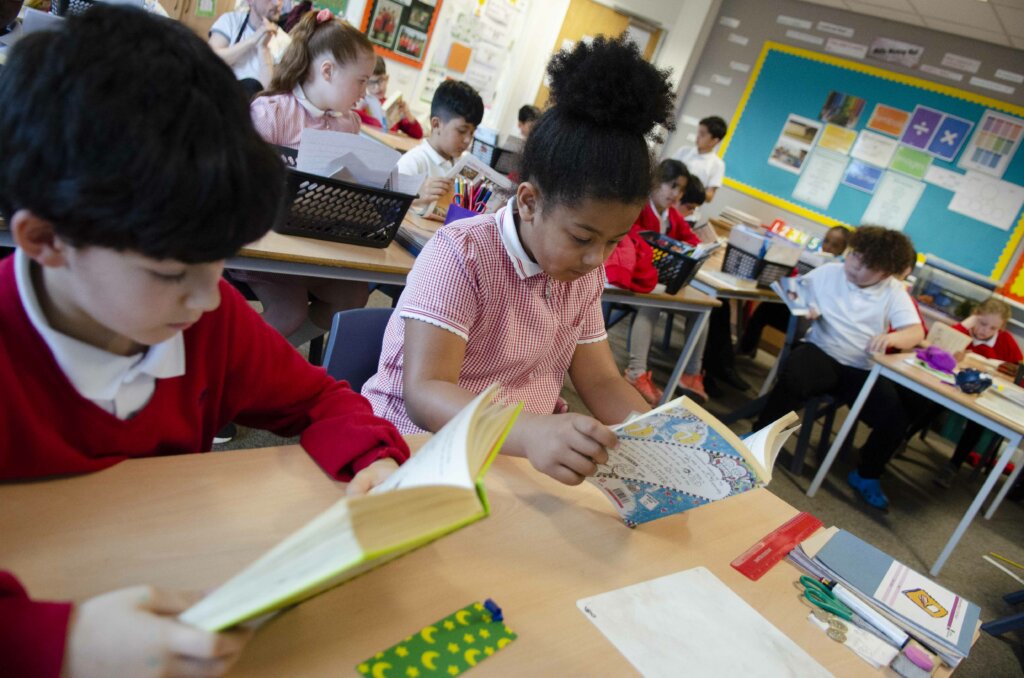Please note, you may want to read our other blogs on Reading Gems prior to reading this blog.
The One Education Reading Gems approach to teaching whole class reading for meaning focuses its fifth session of the week on providing a range of opportunities for pupils to broaden their reading experiences. This blog explores how you can get the most out of Book Club to fully develop your children as readers.
Our Reading Gems Book Club session is an opportunity for children and teachers to be creative, to dedicate time to read for pleasure, and to carry out that yearned for related reading that rarely fits into the timetable. We know from the DfE’s Reading Framework (2023), that supporting children to see themselves as readers is vital for their ongoing reading success and enjoyment. We have a responsibility to model reading habits, share recommendations, and explore the full range of reading materials which give children ownership of what reading means to them. Book Club does just this: it provides opportunities for teachers and pupils to open their related reading while further developing their knowledge and enjoyment of literature; opening doors to new reading experiences.
Our Book Club Structure
The aim of Book Club, the fifth reading session within Reading Gems, is an opportunity for children to make links across the text, to other related reading and across the wider curriculum. The focus in Book Club is on creating a lifelong love for reading.
We do this in Book Club sessions through first choosing a focus such as:
✓ Tasks that develop a love of reading and an appreciation of literature through whole- and part- exploration of texts. This might include ‘book blether,’ guided ‘book talk’ or making recommendations.

✓ Free choice reading opportunities to widen knowledge of reading materials through experiencing genres; learning about authors and their writing styles; investigating themes and making connections: text to text, text to world and text to self which develops children’s reader identities.

✓ Developing background knowledge or responding to a ‘thinking question’ while enhancing understanding of the wider curriculum through reading for knowledge, evidence, and explanation. This may also include relating what they read to their own experiences and how the events in the text relate to the ‘bigger picture.’
✓ Skilling children in librarianship to support them to have a ‘varied reading diet;’ setting them up for life in how to navigate book ownership, reading preferences and conventions for finding texts that interest them.
Then, we explore the text through the focus using our TLC structure:
- Text: Exploring further sections of the focus text to delve deeper into the story or content
.
- Linked Texts: Exploring books by the same author or a particular text type focus and making personalised book recommendations.
- Curriculum Opportunities: Reading more widely around the topic or theme of the text and building understanding and background knowledge as a result.
So, how might a Book Club session look for each focus?
| Focus: | Specific reading related to the initial thinking question of the week e.g. Should we listen to our fears? |
| Text | Reading the next part of the current book to contrast the character’s development. |
| Linked Texts | Reading and reflecting on another book(s) that has a character overcoming fears and comparing/contrasting. |
| Curriculum | PSHE/Science – discussion on how we control our fears, reflecting on own fears and how they have changed over time, learning about how animals control fear through the fight/flight response. A further task might be to research animals who have an interesting self-protection response. |
| Focus: | Guided book talk based on the whole class text that week- an opportunity to read further, find out what happens next and explore character and plot. |
| Text | Read a later chapter of the text and discuss themes, predict, or carry out a task that relates the text to self/world such as putting themselves in the situation of the main character. Include overall impressions of this week’s extract/text: Did you enjoy the text? What were the key points/themes? What were the features of the text? Would you recommend the text? Why/why not? |
| Linked Texts | Research texts by the same author or illustrator and create a shortlist of books they would like to read next. Look up other books of a similar genre, share pupil and teacher recommendations. |
| Curriculum | Generate ideas on the theme of the book- what do we learn from the character and what will be the outcome? What do we already know from our learning and experiences that we can draw upon? Discuss or create a whole class mind map of ideas, predictions, and relevant facts, researching extra information required through other texts and online. |
| Focus: | Time for more informal book blether– an opportunity to ‘cosy read’ on their own or with a partner or younger/older child as a reading buddy. |
| Text | Read a variety of book types – poetry, graphic novels, picture books, newspapers/magazines, non-fiction and share in the enjoyment of the naturally occurring book talk that transpires. |
| Linked Texts | Author focus: consider researching a particular author by watching them in video clips, interviews and reading about them on their website to find out what motivates them as a writer. |
| Curriculum | Challenge pupils to review books related to a particular curriculum area or set them a challenge to find out specific information looking at non-fiction books and building skills such as using the index and contents pages. They may then want to discuss their findings with others. |
| Focus: | Time to develop reader identity |
| Text | Choose from a variety of text types with the challenge to read a different text type each time this activity is undertaken. Share how different texts are read in different ways e.g. non-fiction can be read in any order, inside/outside, picking out one part etc. Set up a cosy reading session and invite children to bring in blankets and cushions to enhance the experience. |
| Linked Texts | Share books on a theme (related to the weekly text e.g. strong female protagonist) and decide which they would like to read, supporting how to choose books. These could also be based on first lines/chapters. Create a class display. |
| Curriculum | Study a small selection of books – choose the odd one out and explain why in a debate form. |
| Focus: | An opportunity to develop library skills |
| Text | Understanding library layout and learning where to find different genres of books. Find books of diverse types around the library and re-shelve given books. Learn about how libraries are organised and alphabetise books. |
| Linked Texts | Select books on a theme or by a particular author from the library or develop non-fiction book reading skills using contents, index and skimming and scanning to navigate the page. |
| Curriculum | Select topic books- fiction and non-fiction, work as a group to read the books and summarise findings comparing what each book can teach us about that topic. |
You will find these, and plenty more ideas in our free resource Book Club – Activity Ideas Bank which provides a quick reference for ideas you can rotate across the year.

To support your planning for Book Club, click here to download an example plan for The Boy Who Made the World Disappear by Ben Miller which includes a detailed Book Club session focused on experiencing more of the book itself.
Planning Book Club
The beauty of Book Club is that you can make the approach bespoke to you and your children’s needs. You could plan to cover each focus once per half term or make it more nuanced. It could even include time to further explore your class novel or ‘Just Read’ text. Whichever way you do it, with Book Club, it’s key to remember that over time we want to:
- Give children the chance to read a wider a range of reading material.
- Support them to develop their reader knowledge and experiences.
- Raise their interest in a wider range of reading materials.
- Enhance their enjoyment of reading as a social activity.
- Give them opportunity to delve deeper into a text as a class.
The schools we support each choose to run Book Club sessions in their own way. An example medium term plan could look like this, with each session giving the chance to explore T.L.C:
| Week 1 | Week 2 | Week 3 | Week 4 | Week 5 | Week 6 |
| Class Novel – Guided Book Talk | Wider curriculum texts – knowledge boost ‘find out’ activity | Author Focus – research and ‘book look’ Teacher recommendation | Book Cafe – choose a different text for starter, main and desert! | Library Skills session | Poetry/Non-Fiction/Graphic novel reading buddies or cosy reading session |
| Pupil recommendations (daily) | |||||
We can support you to make the Book Club approach bespoke to you, guiding you through medium term planning and more. To find out more, email alice.pepper@oneeducation.co.uk
The Rights of the Reader

Daniel Pennac’s The Rights of the Reader (2003) advocates that the act of wanting to read is how we bring about reading pleasure and that, all too often, children are put off through the formality and structure of reading at school. As practitioners, we aim to support all pupils as readers; making reading accessible and most importantly, giving them ownership of their reading so they eventually make time to read out of choice.
Acknowledging the children’s reading rights is equally as important as encouraging them to be readers, and both go hand in hand. Book Club provides an opportunity to try out books, leave them unfinished, read anything and everything in different contexts with a variety of company or to just listen. What could be a better way to make reading meet the needs of all pupils?
If you would like advice on how to create effective reading teaching that is tailored to the needs of your school, please contact the One Education Literacy Team through alice.pepper@oneeducation.co.uk or visit our other reading blogs and videos to find out more.
Why not consider undertaking the One Education Reading Award to develop the reading provision at your school alongside motivating staff and pupils to engage with reading best practice? For more information, please visit our Reading Award Page.
Please complete the form below and we will get in contact as soon as we can to help you with your query.
















